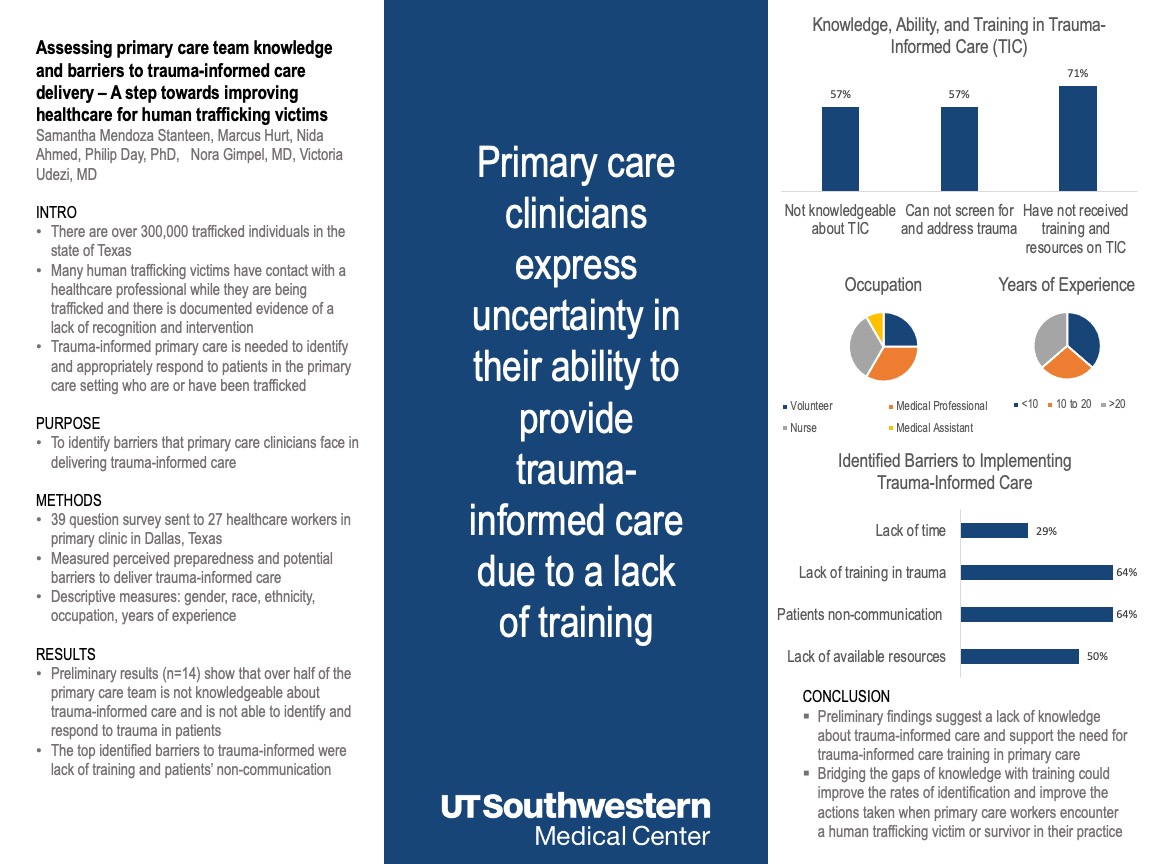SRFP054: Human trafficking in Healthcare: Identifying primary care team knowledge and barriers to trauma-informed care
Samantha Mendoza Stanteen; Victoria Udezi, MD, MPH, MPH; Nida Ahmed
Abstract
Objective: To identify gaps in primary care clinician knowledge of trauma-informed care.
Human subjects review: Quality improvement, non-regulated.
Study Design: Descriptive, cross-sectional study utilizing results from a validated survey that measured the knowledge and attitudes participants had regarding trauma-informed care.
Setting: Primary care clinic in Dallas, Texas.
Participants: The survey was distributed to health care professionals in a primary care clinic
Results: The survey has been completed by 52% (n=14) of the participants. Preliminary findings show that a majority (57%) of participants were not knowledgeable about what trauma-informed care entails and did not feel comfortable in their ability to screen for and address trauma in patients. Seventy-one percent of participants indicated they received no training or resources on trauma-informed care. A third of the participants felt that there were clinic barriers to implementing trauma-informed care including time, expertise, and resources. Sixty-four percent of participants identified lack of training in trauma and patients’ non-communication as personal barriers to implementing trauma-informed care, and half identified lack of available resources.
Conclusions: The practice of trauma-informed care by health care clinicians is needed to identify and properly provide care to human trafficking victims and survivors. Preliminary findings support the need for trauma-informed care training and identify barriers faced by primary care clinicians.

Jack Westfall
jwestfall@aafp.org 11/21/2021Terrific project. Great poster and abstract. Really like the central impact panel in the poster. Thanks for sharing at NAPCRG